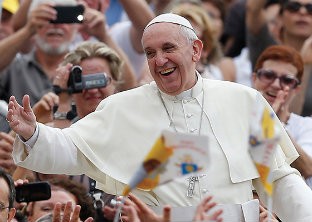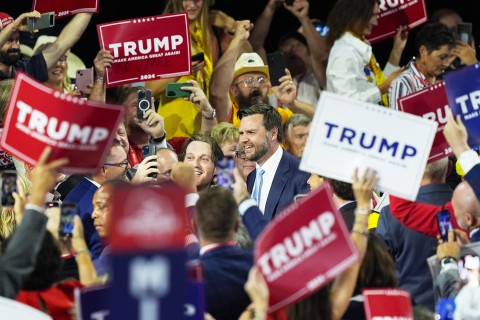Pastor as pope

Early this month, Pope Francis visited the Italian town of Assisi, the birthplace of St. Francis, to reaffirm his connection to his namesake and restate his own mission. “This is a good occasion to invite the Church to strip itself of worldliness,” he declared, saying that the Catholic Church and its pastors must relinquish all “vanity, arrogance and pride” and humbly serve the poorest members of society.
Though a Jesuit himself, Pope Francis has put a Franciscan face on the papacy, beginning with his choice of his name and his decision to ride in a Ford Focus (or take the bus) and to live in a simple room rather than the papal apartment. “How I would like a church that is poor and for the poor,” Francis said on assuming office. His public statements have consistently called attention to the condition of refugees, the shipwrecked, the disabled, and the sick. In one of his several frank and wide-ranging interviews with journalists, Francis lamented that church leaders “have often been narcissists, flattered and thrilled by their courtiers. The [Vatican] court is the leprosy of the papacy.”
To some observers, Francis is a radically different man from the one who as archbishop in Argentina was a cautious administrator and found ways to accommodate the brutal dictators who ruled the country in the 1970s and 1980s (see the review of books on Francis). In his eight months as pope he has dramatically changed the face and tone of the Catholic Church.
Apparently determined to go beyond stylistic or symbolic gestures, he has formed an eight-member Council of Cardinals charged with reining in the Vatican bureaucracy and improving financial accountability. Reportedly also under discussion in the council are pastoral matters such as care for divorced Catholics.
While it is too soon to know whether the pope’s Franciscan vision of the church portends major institutional reforms, Francis has generated enormous excitement by his style of leadership. His comments on homosexuality (“Who am I to judge?”) and on issues of gay marriage, abortion and contraception (“it is not necessary to talk about these issues all the time”) are what Vatican watcher John Allen has called “pastoral reflections.” On occasions when other popes would reaffirm doctrine, Francis seeks to deepen relationships and open conversations. He knows that the way faith is presented makes a difference: people are rarely argued into the church, but they are often loved into it. “The church sometimes has locked itself up in small things, in small-minded rules,” he is willing to admit. “The most important thing is the first proclamation: Jesus Christ has saved you.”
However his papacy unfolds, Francis is renewing all Christians with his Franciscan vision of the church and with the evangelical power of his pastoral voice.





